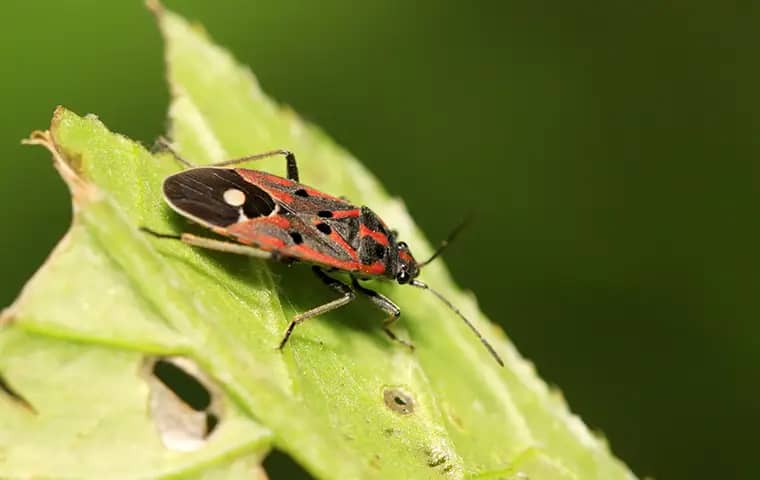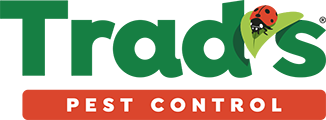Here’s what Jacksonville homeowners should know about combatting chinch bugs, whether they bite, how to manage an infestation, and how pest control in Jacksonville can help.
Grass-Eating Insects: What Is A Chinch Bug?

While chinch bugs have wings and can fly, they prefer to walk from lawn to lawn. Despite their small size, chinch bugs can still cover close to 400 feet in an hour.
These pests can be troublesome if you’re interested in maintaining a healthy lawn because chinch bugs suck the moisture from a blade of grass and then inject toxins back into the blade, so it starts to die. If left untreated, chinch bug damage can cost homeowners hundreds of dollars or more as they destroy your lawn.
Do Chinch Bugs Bite?
They may be damaging for your lawn, but do chinch bugs bite or pose a threat to people and pets? Fortunately, no, chinch bugs are not capable of biting humans or causing harm to anyone that isn’t your lawn. Chinch bugs cannot break the skin, so there’s no way for them to bite you.
If you do encounter chinch bugs, you’ll likely see them hanging off your grass, trying to gain nutrients. These pests are completely harmless to humans and pets, but they can still be incredibly problematic for your Jacksonville lawn.
Tips To Managing A Chinch Bug Infestation
How can you manage an infestation if you suspect you’ve got chinch bugs? Here are some quick tips for identifying and managing chinch bugs on your Jacksonville lawn:
Identify A Chinch Bug Infestation
Chinch bugs can be hard to see, but there are a couple of ways to identify a chinch bug infestation. The first is by looking at your grass. Has your grass turned yellow, and does it look like it’s been through a drought? It’s likely the result of chinch bug damage, especially if you’ve been careful to water and keep your grass healthy.
You can also identify a chinch bug infestation by looking for the bugs. Use a tin can and cut out both ends of the can so that you’re left with a tube. Press the tube into the soil and fill it with water. After about ten minutes, you can check it to see if any chinch bugs have floated up to the surface.
If you have chinch bugs, the next step is to contact a pest control professional to treat your lawn and effectively kill off the infestation.
Maintaining Your Lawn
When it comes to managing and preventing chinch bug infestations, the best way to prevent these pests is by maintaining your lawn and keeping it in top-notch shape. Always mow your lawn so that it stays short, remove thatch, aerate your lawn regularly, and water it so that it remains healthy.
Professional Chinch Bug Treatment In Jacksonville
While you can use turf insecticides to combat chinch bugs, an over-the-counter chinch bug spray or remedy isn’t always the best choice. These chemicals can harm beneficial insects like bees. The best way to deal with chinch bugs in Jacksonville is by contacting the lawn care professionals at Trad’s Pest Control.
Rather than waste hundreds of dollars on treatments that won’t kill off your chinch bugs and may be toxic for the environment, call in the pros. We’ve got over fifty years of experience combating troublesome pests like chinch bugs, and we can put that experience to good use on your Jacksonville property.
If you have identified a chinch bug infestation on your lawn or suspect you might have one, you shouldn’t let these critters keep sucking the life out of your grass. Contact us today at Trad’s Pest Control to learn more.
